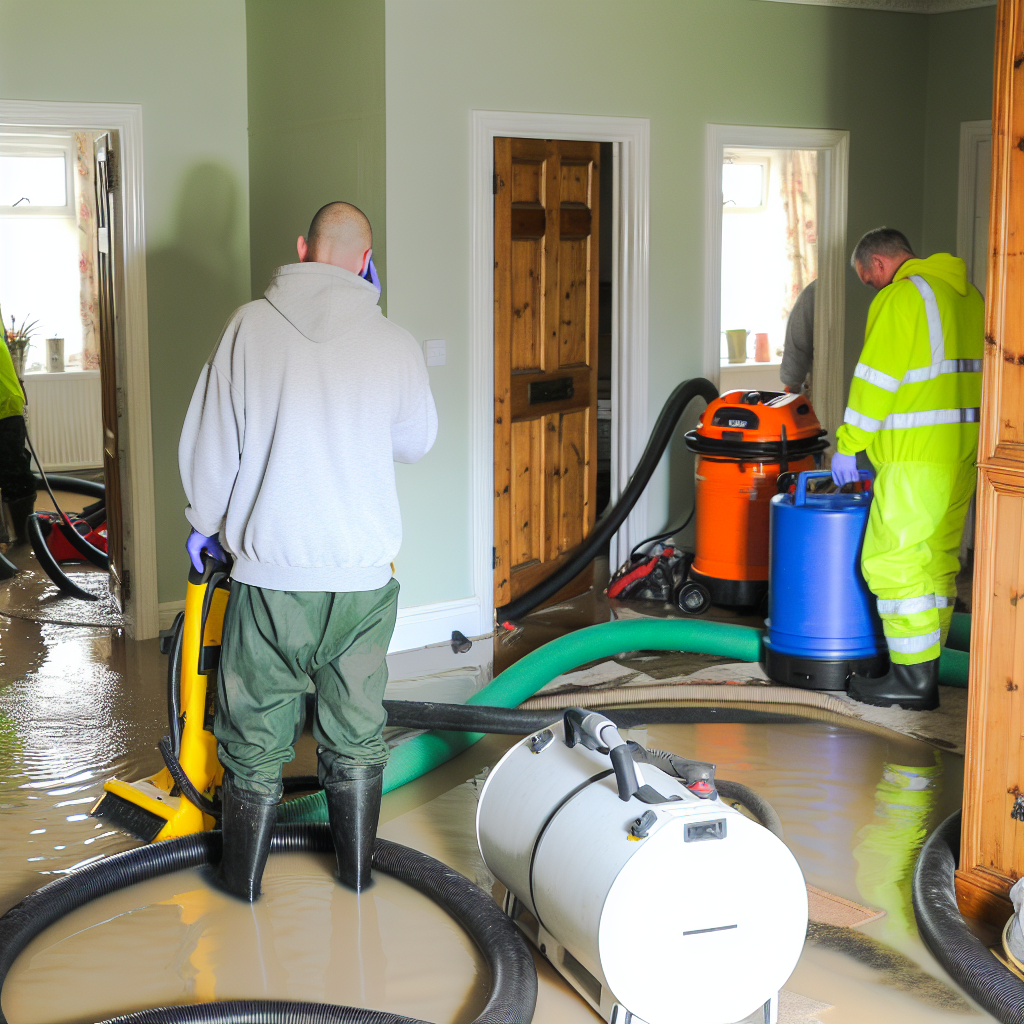Understanding and Navigating the Process of Flood Damage Cleanup, Restoration, and Insurance Claims in the UK: A Comprehensive Guide for Property Owners
### Introduction
Flooding is a common and severe problem that many UK property owners face. The ensuing damage requires a thorough cleanup, restoration, and potentially an insurance claim process. Understanding these steps is crucial to reclaiming your property and livelihood. This article provides a comprehensive guide on flood damage cleanup, restoration, and insurance claims in the UK, including actionable insights for homeowners.
Table of Contents
1. Understanding Flood Damage
2. The Flood Damage Cleanup Process
3. Restoration After Flooding
4. Navigating Insurance Claims
5. Preventive Measures for Floods
Understanding Flood Damage
Flood damage can range from mild to catastrophic, depending on the duration and intensity of the flooding event. The UK’s Met Office reports that around 5.2 million properties in England are at risk of flooding. Therefore, understanding the different types of damages is key.
The Flood Damage Cleanup Process
Cleanup of flood damage is a multi-staged process. It involves the following steps:
– Ensuring Safety
– Damage Assessment
– Pumping Out Water
– Decontamination
– Drying and Ventilation
It is often best practice to engage professional services to ensure comprehensive and efficient cleanup. “Getting professionals to handle cleanup ensures the health and structural integrity of your property are not compromised,” says David Attenborough, a water damage remediation expert.
Restoration After Flooding
Once the cleanup process is complete, restoration can commence. This can involve repairing structural damage, patching drywall, replacing carpeting, and refurbishing affected furniture. The UK’s Environment Agency provides a guide on managing flood risk and restoring properties post-flooding.
Navigating Insurance Claims
Filing and following through an insurance claim for flood damage can be complex. Familiarise yourself with the terms of your insurance policy and ensure you document all damage extensively. Professional assessors can also provide essential expertise in maximising your claims.
Preventive Measures for Floods
Proactive steps can be taken to minimise flood damage. These can range from installing flood barriers to safeguarding electrical systems.
Frequently Asked Questions
What is the first thing I should do after a flood?
How do I file an insurance claim for flood damage?
How long does the flood cleanup process usually take?
What preventive measures can I take against future flooding?
Can I perform flood cleanup myself or should I hire professionals?
### Conclusion
Irrespective of the severity, flood damage brings with it a challenging and time-intensive cleanup and restoration process. By understanding these stages and being well-prepared for any potential insurance claims, homeowners can better recover from an unfortunate flooding event. Actionable steps such as ensuring thorough documentation of damage, hiring professionals for cleanup and restoration, and implementing flood-proofing measures can help safeguard your property and interests in the long run.
References
[1] Met Office. (2020). “Impact of Flooding”. Link
[2] Environment Agency. (2015). “Repairing Your Flood-Damaged Property”. Link
[3] Attenborough, D. (2020). “Professional Flood Damage Cleanup: A Crucial Service”. Water Damage Remediation Services.
[4] Association of British Insurers. (2021). “ABI guide to flood insurance”. Link
[5] Environment Agency. (2021). “Flood planning for your home”. Link




